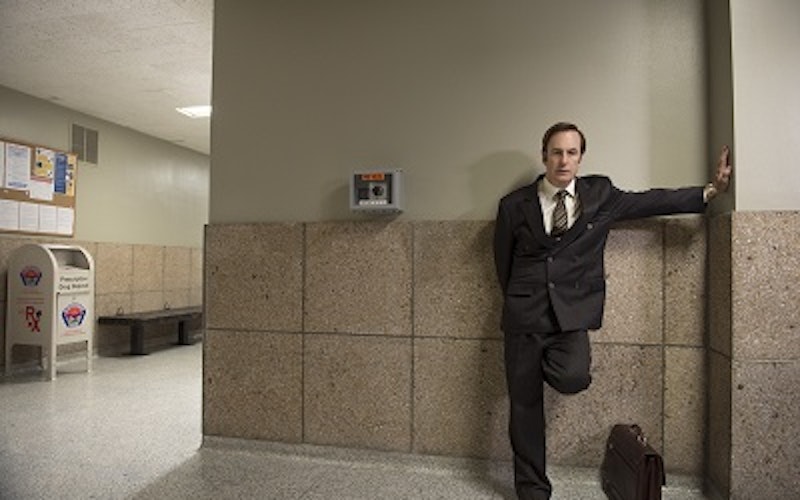
TV
The Lutheran tragedy of Better Call Saul
If Breaking Bad takes the form of a Greek tragedy, then maybe we could call its new prequel series, Better Call Saul, a Lutheran tragedy.
Set several years before the events of Breaking Bad, Better Call Saul is the origin story of Saul Goodman (Bob Odenkirk), a scuzzball lawyer from the earlier series. Saul was once Jimmy McGill, a former scam artist from Cicero, Ill., who is trying his best to go straight in Albuquerque, N.M. In the first five episodes, we see Jimmy caring for his brother Chuck (Michael McKean), a successful lawyer who now suffers from electromagnetic hypersensitivity and is unable to leave his home. For Chuck’s sake, Jimmy tries to grind out a living as an honest lawyer, taking public defender cases at $700 a trial.
That’s the start of a very different character arc than that of Breaking Bad’s Walter White (Bryan Cranston), a chemistry teacher bitter about his unrecognized genius. Walt embarks on a meth-cooking career out of hubris; he believes he knows better than anyone around him, and can accomplish more through science (and, eventually, sheer ruthlessness) than others have dared to dream. Breaking Bad is a five-season downward spiral into destructive pride.
The man once known as “Slippin’ Jimmy” is defined by his acute guilt.
Unlike Walt, who acts out of a narcissistic conviction of his own exceptionalism, the man once known as “Slippin’ Jimmy” (for taking tumbles on icy sidewalks and demanding money from frightened property owners) is defined by his acute guilt. The same could be said for Martin Luther, who - prior to his career as a church reformer - lived the life of a monk devoted to piety and righteousness. His efforts were motivated by an economic metaphor that saw human redemption in terms of a balance sheet: Jesus’ sacrifice clears the ledger of the infinite debt of original sin. Thereafter one keeps one’s accounts with God solvent by engaging in meritorious works. Although sin’s debits are hard to avoid, they can be offset by a scrupulous life of prayer, charity, repentance, worship and poverty. Even better, the monk’s positive balance could be tapped by laypeople whose occupations did not allow for such constant attention to religious accomplishment.
Yet every time Jimmy is in Chuck’s presence, he feels like his brother can only see how delinquent he used to be, never the good lawyer he’s trying to be now. Even though he’s trying to toe the straight and narrow - even though he’s doing a civic service by helping clients who have nowhere else to turn - he can’t escape that feeling of being irredeemably guilty in his brother’s eyes. And so in the fourth episode, Jimmy decides he might as well be what his brother thinks he is and takes a wad of cash from a pair of white-collar embezzlers in exchange for his silence. “Upon this rock I will build my church,” he mutters as he counts the money.
Luther experienced an epiphany because he was not able to erase the consciousness of guilt through religious devotion. He became convinced that he could stand before God simul justus et peccator - simultaneously justified and a sinner. Jimmy’s epiphany, however, takes place in the same godless, punishing desert that will later produce Walter White. Realizing he is a sinner by nature, unable to save himself with good works, the only option he perceives is to accept that he’s damned.
Topics: TV, Culture At Large, Arts & Leisure